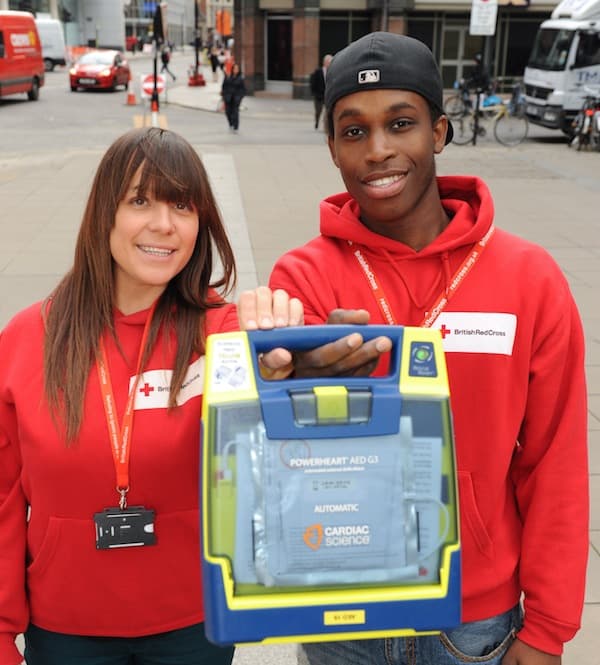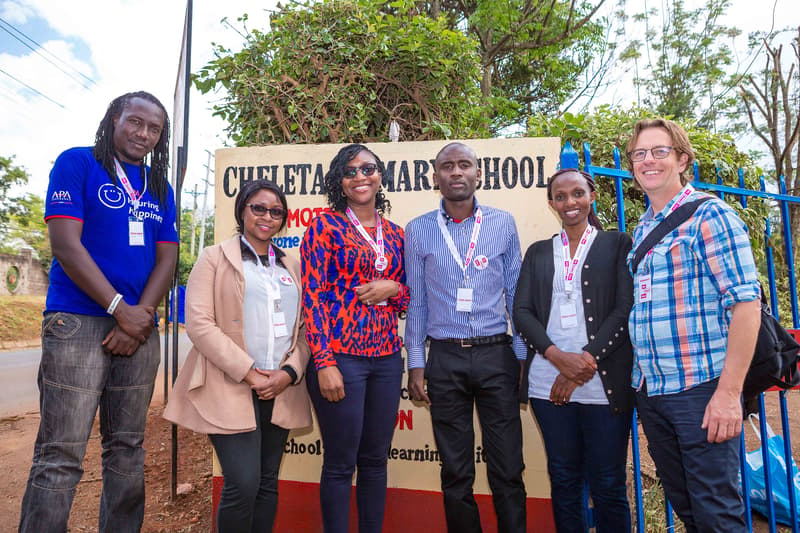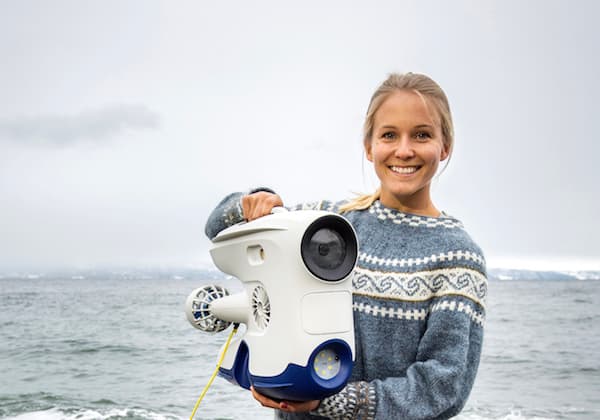Consultant, Migration
Nairobi
- Organization: IFRC - International Federation of Red Cross and Red Crescent Societies
- Location: Nairobi
- Grade: Consultancy - Consultant - Contractors Agreement
-
Occupational Groups:
- Social Affairs
- Migration
- Closing Date: 2023-11-30
Organizational Context
The International Federation of Red Cross and Red Crescent Societies (IFRC) is the world’s largest humanitarian organization, with a network of 191-member National Societies (NSs). The overall aim of IFRC is “to inspire, encourage, facilitate, and promote at all times all forms of humanitarian activities by NSs with a view to preventing and alleviating human suffering and thereby contributing to the maintenance and promotion of human dignity and peace in the world.” IFRC works to meet the needs and improve the lives of vulnerable people before, during and after disasters, health emergencies and other crises.
IFRC is part of the International Red Cross and Red Crescent Movement (Movement), together with its member National Societies and the International Committee of the Red Cross (ICRC). The work of IFRC is guided by the following fundamental principles: humanity, impartiality, neutrality, independence, voluntary service, unity, and universality.
IFRC is led by its Secretary General, and has its Headquarters in Geneva, Switzerland. The Headquarters are organized into three main Divisions: (i) National Society Development and Operations Coordination; (ii) Global Relations, Humanitarian Diplomacy and Digitalization; and (iii) Management Policy, Strategy and Corporate Services. IFRC has five regional offices in Africa, Asia Pacific, Middle East and North Africa, Europe, and the Americas. IFRC also has country cluster delegations and country delegations throughout the world. Together, the Geneva Headquarters and the field structure (regional, cluster and country) comprise the IFRC Secretariat.
All around the world, migrants, refugees, asylum seekers and other displaced people including people on the move make dangerous and difficult journeys in search of safety or a better life. Whether on land or at sea, people on the move face many risks to their lives, dignity, and rights. They die or go missing, they experience harm, abuse, and exploitation. They struggle to access food, water, healthcare, information and other essential needs. They face discrimination and stigma and lose connection with family and friends. In recent years we have seen major migratory movements along the Atlantic route from West Africa to the Canary Islands (Spain), while others cross the Sahara in the hope of reaching and crossing the Mediterranean Sea. Many, with the hope of reaching Europe, get stranded in transit countries, susceptible to severe conditions along the route, and for many, returning home becomes the ultimate option for their survival.
Sahel plus group comprises the Red Cross Red Crescent National Societies of Burkina Faso, Cabo Verde, Chad, The Gambia, Guinea-Bissau, Guinea Conakry, Mali, Mauritania, Niger and Senegal, as well as the International Federation of Red Cross and Red Crescent Societies (IFRC) and the International Committee of the Red Cross (ICRC) as observer members.
The National Societies in the Sahel region have a long-standing experience on working with people on the move, providing assistance and protection to them including returnees and their work is guided by seven fundamental principles of the Movement: humanity, impartiality, neutrality, independence, voluntary service, unity and universality.
Job Purpose
Consultancy Service for Proposal Development of a migration programme for returnees in the Sahel with a primary focus on livelihoods
An intra-regional phenomenon. The Sahel region has a long history of population’s movements. Seasonal, pendular and circular migrations are an essential part of local resilience strategies. Intra-regional migrants with valid travel document can benefit from the freedom of movement framework established by the Economic Community of West African States. However, access to essential services within the region is particularly challenging for migrants, due to significant administrative, financial, socio-cultural and language-related barriers, as well as risks of discrimination.
Dangerous routes through deserts and seas. The Sahel is at the crossroads of migration routes to and from North Africa and Europe, extending through the Sahara Desert, the Mediterranean Sea and the Atlantic Ocean. Migrants moving along these routes face significant protection risks, including loss of family contact, human trafficking, gender-based violence, detention and forced deportations. Many are unable to continue their journey or return home and may find themselves in need of long-term support. Those who return, on their own will or by force, face significant reintegration challenges. A significant proportion of migrants within the region is represented by unaccompanied and separated children, and the number of women and girls embarking in these dangerous journeys is on the rise.
Double impact of conflict and climate change. Disasters such as floods and droughts, as well as the effects of climate change and environmental degradation, continue to exacerbate vulnerabilities across the region, and contribute to induce migratory movements and internal displacement. Moreover, the region is grappling with conflict and violence, particularly around the Lake Chad Basin, in Northern Mali and in parts of Burkina Faso, triggering internal and cross-border displacement. The areas that are worst affected by violence, and those experiencing the most severe impacts of climate change, largely overlap – with serious consequences on the vulnerabilities of migrants, displaced persons and host communities.
Throughout the years, the Sahel+ group has established several initiatives on key issues of interest for the RC/RC Movement such as a Food security platform in 2016 and a Sahel+ Migration network in 2017, and it has acted as a key vehicle for discussing IFRC and ICRC led initiatives and joint programming in the region and for our members.
Many NS in the Sahel Region are part of the IFRC multi-year Global Route-Based Migration Programme that aims to improve the safety and dignity of people on the move along migration routes in Africa, Europe, Middle East and North Africa and the Americas. The Programme includes the commitment of 16 National Societies in Africa and 6 NS in the Sahel Region, to scale up assistance and protection – primarily through Humanitarian Service Points - to the most at-risk people on the move. The programme also facilitates increased cooperation and coordination between National Societies across borders, and along migration routes. The Programme also creates a strengthened collective evidence base for effective humanitarian diplomacy.
There is a need for more predictable and sustainable funding for National Societies in the Sahel to scale up their activities and collective commitment to migrants upon return to the Sahel. It is clear there is a need to strengthen livelihoods support for returning migrants, as well as address issues of stigma, marginalisation, and PSS.
Job Duties and Responsibilities
The aim of Sahel+ Group and movement partners, which have the ambition to set up a long-term program complementary to the global migration route based program in the Sahel region, will revolve around the following elements:
- Strengthening and expanding the existing global route-based program to ensure continuity of services for people on the move, and to promote, protect and uphold their dignity and rights, with evidence-based humanitarian diplomacy and advocacy in favour of migrants. Support National Societies capacity strengthening to better manage, and always respond to the needs of migrants and displaced people and stages of their journey.
- Socio Economic empowerment: Provide migrants and returnees with livelihood skills, resources and opportunities to create sustainable livelihoods in their host and origin communities.
- 3 Integration and reintegration: Facilitate the successful integration of migrants into host communities and the reintegration of those who return to their communities of origin, to reduce their vulnerabilities.
Purpose of the consultancy
The Sahel+ Group with the support of movement partners is seeking to:
- Develop a multi-country migration assistance programme focused on returnees in the Sahel with a primary focus on livelihoods and linked to the broader Global Route Based Programme.
- This ambitious program is looking at 10 countries from the Sahel, know as the Sahel Plus Group.
- Develop a proposal with PNS targeting donors (including French, German Government) to mobilise resources with key donors, including key donor Governments. It is key that the potential partners are included in the co-creation of the programs at country and sub regional level (probably Dakar). The proposal should as well target International Financial Institutions and regional.
Tasks
- Review of relevant background documentation and materials, including:
-
- The Global Migration Route-Based Programme in Africa with focus on the Sahel NS,
- Relevant migration programmes developed by NS and partners NS in the Sahel region.
- NS plans expressed through the unified planning process
- Secondary data and analysis of migration needs in the Sahel, including focused on returning migrants and livelihoods.
- Key programmes and plans by external stakeholders in the Sahel region, eg UNHCR, IOM, civil society, African Union and ECOWAS.
- Development of templates for National Societies´ input of narrative and financial information, and logical framework
- Liaison with IFRC M&D department, Ops, health, CEA, communications, PMER, PRD and finance to gather inputs for the proposal.
- Structured consultations with National Societies, Government, and relevant partners
- Consolidation of inputs into a coherent proposal following steering committee’s guidance
- Ensure the proposal, budget and annexes align with the IFRC’s plans and priorities.
- Ensure proposal, budget and annexes are internally approved and submitted in an appropriate format and to the highest possible quality in time for the deadline.
- Inclusion of inputs from Sahel+ Resilience Platform, Sahel+ TWG on Migration, and EUNS as needed.
- Coordination with ICRC and relevant partners to ensure complementarity of proposals as needed.
- Other related tasks as necessary and agreed with the IFRC Head of PRD Africa
Job Duties and Responsibilities (continued)
Roles and Responsibilities
- The consultant will lead the proposal consolidation and writing process until the final submission to the steering committee.
- IFRC Heads of Delegations are overall responsible to support the consultant for the proposal development with support from the Regional Migration and Displacement Coordinator and PRD/SPRM.
- The IFRC Regional Migration and Displacement Coordinator will be the technical focal person for the proposal development.
- IFRC Regional Migration and Displacement Coordinator will be responsible for liaison with African National Societies, IFRC country delegations and EU National Societies
- The consultant will closely work with IFRC Africa RO PRD, IFRC country delegations in the Sahel region, and other IFRC regional or global technical experts as required.
- The IFRC Head of PRD and Regional Migration and Displacement Coordinator will provide the necessary access to IFRC units, offices, staff and resources to complete the proposal, including any needs assessments or financial information needy.
Working modality
The consultant will work remotely. If needed the consultant can be located in the Dakar Cluster Delegation.
Deliverables
- First draft of the multi-country migration assistance programme for returnees in the Sahel with a primary focus on livelihoods, annexes, and budget and First draft of the proposal with the French Red Cross targeting the French Government for support to the Sahel part of the Global Route Based Migration Programme, annexes and budget submitted to the steering committee by 20 December 2023
- Following feedback from the steering committee, revised draft the multi-country migration assistance programme for returnees in the Sahel with a primary focus on livelihoods, annexes, and budget and draft of the proposal with the French Red Cross targeting the French Government for support to the Sahel part of the Global Route Based Migration Programme, annexes and budget in time for the new deadline for submission.
- Framework for series of national consultations/co-creation workshops for further development of national/regional proposal(s)
Timeframe
The consultancy will be for up to 30 days, to be delivered by 31 December 2023 or until final submission is completed if earlier.
Payment
Payment will be made by bank transfer after satisfactory completion of the terms of reference and following submission of invoice.
Education
University degree in relevant area
Experience
Qualification of the Consultant
- Demonstrated Experience and success in working on Major Donors application (ECHO, Governments…)
- Programmatic design experience and technical knowledge about migration and displacement
- Familiar with IFRC, Africa context and migration/Livelihood operations
- strong experience with donor lands scrapes and programme design at scale related to return and reintegration.
Knowledge, Skills and Languages
- Proficient in spoken and written English and French is required
Competencies, Values and Comments
Values: Respect for Diversity, Integrity, Professionalism, Accountability.
Core Competencies: Communication, Collaboration and Teamwork, Judgement and Decision Making, National Society and Customer Relations, Creativity and Innovation, Building Trust.








